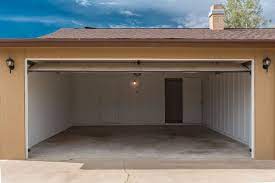Is converting a garage a wise decision? Yes, according to a lot of homeowners. For many homes when extra space is in short supply, covering the trade-off, storage against actual living space, and off-road parking is worth it.
Furthermore, it is likely to be less expensive, faster, and easier than building an extension from the ground up, so while it won't be a cheap job, you can anticipate it to be one of the more cost-effective options to expand your living space.
Also Read: Housing Cost In Australia: Interesting Facts
More to consider
We've got you covered if you're thinking if a garage transformation is right for you. Our specialists have compiled all of the most critical factors to consider when converting a garage so that you have all of the knowledge you require.
Our comprehensive guide covers everything from planning approval and Building Regulations to how the conversion process works, how costly it would be, and how you'll need to repair the structure of your garage to make it ready for conversion.
But, before you move on, here are a few points to consider.

1. Is it necessary for us to obtain planning permission?
Garage conversions usually necessitate a planning application from your town authority because they are alterations to an existing structure. This is true if you plan to install windows and utilise the space as a bedroom, living room, or even a games room, as the council will consider the space habitable. Consult your local government about the fees and timelines involved. If you proceed with construction without first obtaining planning and building permissions, you may face difficulties in the coming time when it comes to selling your home.
2. What kind of renovations are necessary?
This is depends on how you intend to use the space and the garage's current structure. It will need to be waterproofed and insulated, re-floored, ceilings, windows, heating, and decorated if it is to be properly merged with the rest of the house. Examine the credentials of any expert you hire, as well as the kind of conversions they've completed previously. You don't have to take any chance with low-quality work. Consider hiring an architect to help you plan and oversee the project.
3. What will I do with my car(s)?
Because your garage is no longer available, you'll have to accept the fact that you'll have to park your car on the street, which is less secure and not covered. Is it possible to park and put a carport on your driveway? And, if you use your garage to store tools, motorcycles, and your lawnmower, have you figured out where you'll keep them in the future? Maybe you'll be able to squeeze in a little garden shed?
4. Will it increase the value of my home?
Converting a garage in a bad way, may lower the value of your home in the eyes of potential purchasers since not only is there no garage. But there is also a space that must need conversion, back into a garage to bring it up to code. A garage conversion with designing and development permits that blends well with the current floor plan of the property and is well-built and under completion, on the other hand, will add value. The extra room(s) and a great makeover will appeal to buyers.
5. Is it better to improve your current home or relocate to a new one?
If you opt to stay, you will be responsible for renovation expenditures and will not be required to spend money on the purchase and sale of your home. There are real estate agency expenses, relocation fees, stamp duty, and so much more — not to mention the hassle of altering your address, reconnecting your services, and so on. However, if you require'more' than just an extra space from the garage and have other compelling reasons to relocate, it may be time to do so.
Also Read: What Inspections Should You Conduct Before Buying A Property?
6. Is it better to buy a new house or renovate your current one?
If you want to stay, you will be responsible for renovation expenditures and will not be required to spend money on the purchase and sale of your home. There are real estate agency expenses, relocation fees, stamp duty, and so much more — not to mention the hassles of altering your address, reconnecting your services, and so on. However, if you require'more' than just an extra space from the garage and have other compelling reasons to relocate, it may be time to reconsider.
Final Comments
If you wish to stay, you'll be liable for renovation costs and won't have to pay for the purchase and selling of your home. There are real estate commissions, relocation fees, stamp duty, and a slew of other costs, not to mention the headaches of changing your address, reconnecting your services, and so on. If you require more than just extra garage space and have other solid reasons to relocate, it might be time to reconsider.



